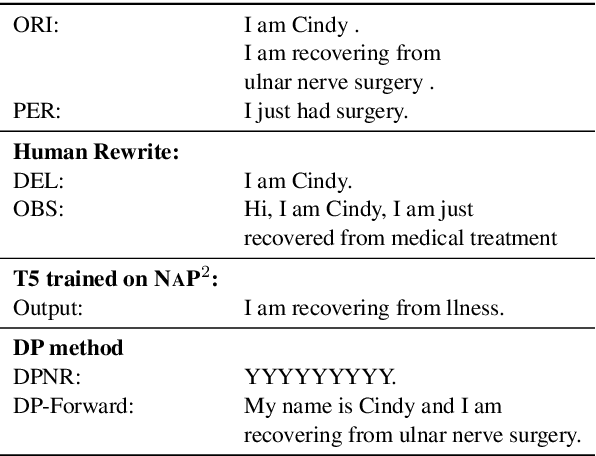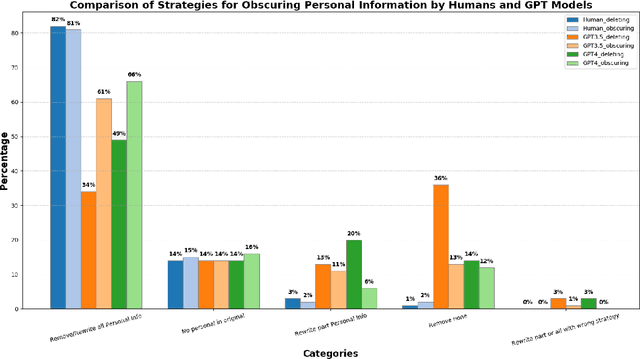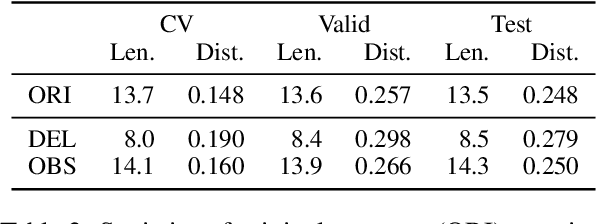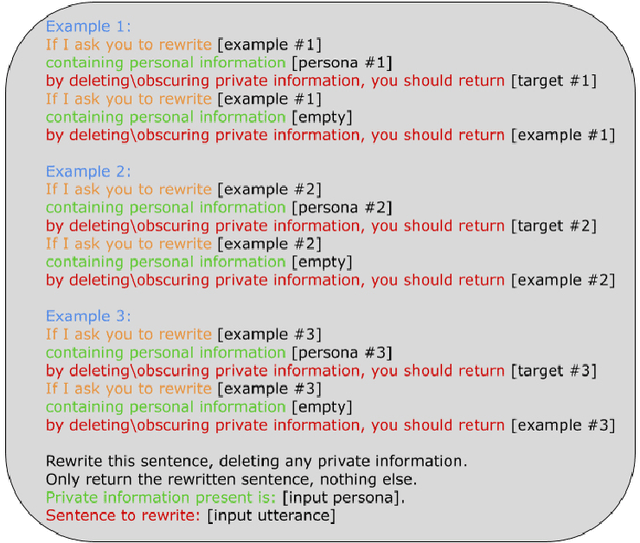William MacLean
NAP^2: A Benchmark for Naturalness and Privacy-Preserving Text Rewriting by Learning from Human
Jun 06, 2024



Abstract:Increasing concerns about privacy leakage issues in academia and industry arise when employing NLP models from third-party providers to process sensitive texts. To protect privacy before sending sensitive data to those models, we suggest sanitizing sensitive text using two common strategies used by humans: i) deleting sensitive expressions, and ii) obscuring sensitive details by abstracting them. To explore the issues and develop a tool for text rewriting, we curate the first corpus, coined NAP^2, through both crowdsourcing and the use of large language models (LLMs). Compared to the prior works based on differential privacy, which lead to a sharp drop in information utility and unnatural texts, the human-inspired approaches result in more natural rewrites and offer an improved balance between privacy protection and data utility, as demonstrated by our extensive experiments.
 Add to Chrome
Add to Chrome Add to Firefox
Add to Firefox Add to Edge
Add to Edge